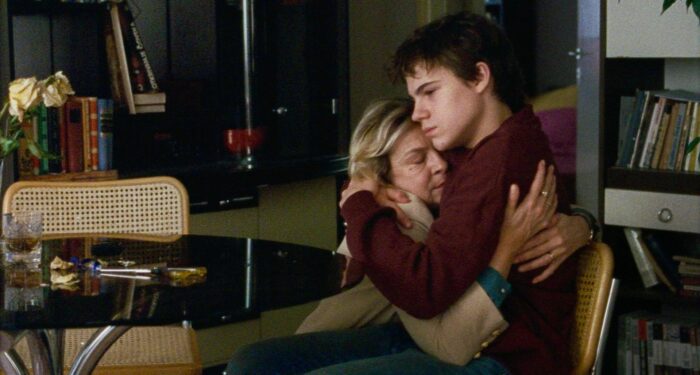Serbian director Vladimir Perišić’s Lost Country is part of the definitive elite among the countless films centered around the dissolution of Yugoslavia in the 1990s: Perišić, who received his film education in France, approaches the age of Serbian division in an enjoyably cool manner, through family conflicts — by depicting the relationship between a 15-year-old schoolboy and his politruk mother.
Among the excellent cast are Jovan Ginić, in his award-winning role as the timid Stefan, and Jasna Đuričić (known for her lead role in Quo Vadis, Aida?, 2020) as Stefan’s authoritarian mother Marklena, who is used to making all the decisions — down to the style of the boy’s eyeglasses. Marklena is a supporter of president Slobodan Milošević, who would later be convicted as a war criminal. Political tensions begin to make Stefan anxious, as the 1996 anti-corruption student protests supported by his peers escalate, towards the boy’s startling dénouement.
Peace is only found at the grandparents’ house. The inconspicuously calm camerawork moves Perišić’s understandably pessimistic film forward in mundanely realistic milieus: at home, in school, on the street, and in parks. The symbolism is not heavy-handed as the boy wrestles with his views in a “lost country.”
Timo Malmi
